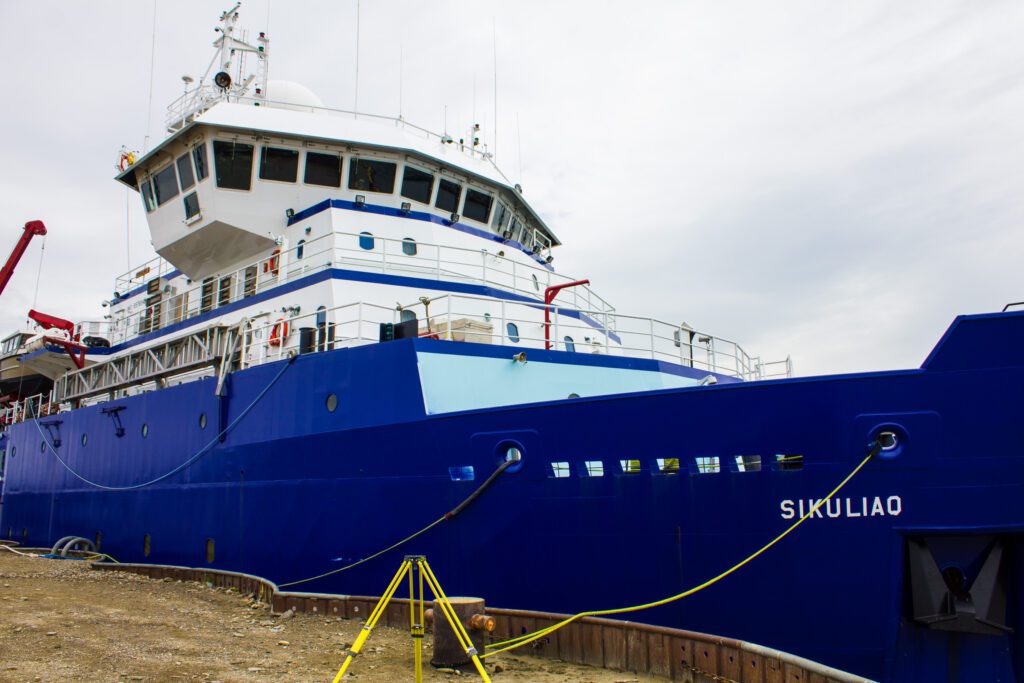Nations, and businesses both here and abroad have their eye on the Arctic. Alaskan coastal communities assume the greatest risk from increased transit and industry—but have much to gain from responsible resource development.
That’s why three coastal Native corporations joined together to form the Inuit Arctic Business Alliance. Bering Straits Native Corporation, NANA Regional Corporation, and Arctic Slope Regional Corporation announced their partnership last week. Their main goals: to speak for themselves in a unified voice so development benefits their shareholders.
“It really is an effort to build a strong foundation today for tomorrow’s shareholders. There’s a lot of hope and promise in it,” said Tara Sweeney with Arctic Slope Regional Corp. She said the alliance will change the way outside companies conduct business in Alaska and the Arctic in general.
“When you have a barrage of outside interests looking to gain a foothold in the Alaskan Arctic, several questions arise in those situations and one is: How do we ensure that those interests wanting to come into our area of the world are going to be good Arctic stewards?” asked Sweeney.
Risks of development are numerous, and include the threat to subsistence culture and food security. Matt Ganley with Bering Straits Native Corp. said the alliance is presenting a united front—recognizing that development anywhere in the north impacts the entire Arctic.
“Instead of having one region try to advocate for responsible development in the Arctic, you have three regions with very, very different backgrounds doing it together as a single voice,” said Ganley. “I think there’s some great strength to come from that.”
Ganley said there is much to gain from development in each region’s backyard—oil and gas exploration on the North Slope, zinc mining at Red Dog, and precious metals along the Bering Strait. But he said there’s greater benefit in working together.
“Rather than compete—which is what business do, and what regional corporations are, are businesses—I think the feeling was that together they could actually be more productive and have these infrastructure improvements begun where they’re needed,” said Ganley.
The alliance will focus specifically on improvements in telecommunications, transportation, and revenue sharing in their first year. For example, Liz Qaulluq Cravalho with NANA Regional Corp. said the development of ports is good for industry, assists in spill response, and lowers the cost of living in expensive northern regions.
“Infrastructure is critical to expanding economic opportunity in the Arctic,” said Cravalho. “It’s important for us as businesses, but it’s also important for our communities.”
Cravalho said the alliance is considering issues like sovereignty, identity, urbanization and assimilation. Most of all, she said, “We really want to be speaking for ourselves on the global stage.”
The alliance leadership board is made up of three representatives from each corporation. They plan to meet in Nome next year.







